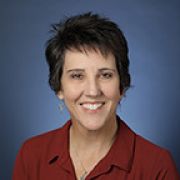Health professions education programs are diverse. Students, faculty, and staff come from infinitely unique cultures, communities, identities, and lived experiences. Health professions education programs are also founded with varied goals and missions and customized pedagogical approaches to education. Effective navigation of this dynamic and many-dimensional system requires an understanding of the complex of components, connections, and systems that form the ‘body’ of health professions education. Onboarding and sustained growth in health professions education is challenging and high stakes. Educators need shared maps that match this complex terrain to facilitate communication, progress, and efficiency. Does your map match the terrain?
Systems maps are useful for describing and defining shared mental models and delineating common versus local needs, processes, and goals to meet the educational needs of students. Systems maps are particularly effective for revealing and disrupting unproductive tendencies toward siloing. In his paper ‘The Seven Silos of accountability,’ Joshua Travis Brown presents a model of accountability silos in higher education that tend function to independently versus interdependently, each with domain-specific best-practices, professional organizations, data systems, and so on. This model is highly applicable to silos the exist in health professions education. The seven solos are assessment, accreditation, institutional research, institutional effectiveness, educational evaluation, educational measurement, and higher education public policy. Dr. Brown proposes that a single conceptual model that integrates siloed accountability is needed to support efficiency, engagement, and agility. For example, in health professions education, program accreditation requirements are highly dependent on and reflective of all other silos of accountability. Specialized stakeholders may lack understanding of this broad network, leaving leadership in the difficult position of ‘pulling it all together’ with limited backup and support.
How can we work together to orient those new to health professions education, monitor and manage systems-level change, and identify opportunities to streamline effort and innovation?
Where am I? Am I Lost?
I joined the Harvard Macy Institute family as scholar in the "Systems Approach to Assessment in Health Professions Education Course" in 2020. My week as a scholar was also my first week in my new role as Director of Evaluation and Scholarly Associate Professor with the Elson S. Floyd College of Medicine. I boldly set out to map the structure and function of my new medical school as my course project. Given that I had yet to step foot on the terrain of my new professional home, my audacious plans to map the territory of the program in one week was a bust. The idea sustained, however, and has blossomed into a collaborative effort to support health professions education programs with understanding and problem-solving within and across local educational ecosystems.
The Systems Approach to Assessment in Health Professions Education Course is a project-based, active learning experience designed to support scholars with applying systems thinking toward designing assessment programs to support the development and improvement of health professions education and curricula. The scholar experience includes a reading about visualizing systems and components of systems as a mechanism for understanding and solving system-level challenges. These visualizations are called Organigraphs.
An Organigraph is a map that is designed to accurately reflect the terrain of an organization, including sets (e.g., people and sets), chains (e.g., linear connections), hubs (e.g., coordinating people and functions), and webs (e.g., systems within systems). Organigraphs are practical tools that can be used to make implicit systems explicit, to understand how, where and why aspects of the system are (or are not) functioning as intended and yielding desired results, and to plan systems-level improvements.
Right Place, Wrong Map
As I worked on my Organigraph in the course, I realized that the map I had of Health Professions Education was overly specific to my previous institution and not fully transferrable to my new institution, or to health professions education overall. Some aspects of my old map were common across institutions, such as the admissions application process, standardized national exams and surveys, and applying to residency. Many other aspects where unique to my new institution, and thus unfamiliar. Over the past two years, I have been on the steep learning curve we all face with a change in roles or institution. I have recalibrated may map to better fit my current role and to support understanding cross-Collaborative Map-Making
A group of evaluators from various institutions have come together to have come together through a working group supported by the Association of American Medical Colleges (AAMC) Group on Information Resources (GIR). We are working together to de-silo and build shared mental maps. We are developing an open-source data visualization tool that will allow users to create visualizations and summaries of the relatedness, relative importance, and interconnectedness of siloed functions, dedicated and cross-functional sources of information and data that support these silos, and a range of additional layers to support the development and accuracy system maps. These maps will be useful to support onboarding of new team members, provide content for productive and informed planning and implementation of systems, and facilitate efficiency and agility toward monitoring the health of a system. If you are interested in this work, please join us!
Did you know that the Harvard Macy Institute Community Blog has had more than 320 posts? Previous blog posts have explored topics including core EPAs for entering residency, maintaining academic integrity during remote proctoring, and systems of assessment in educational settings.
Erin J Griffin, PhD


